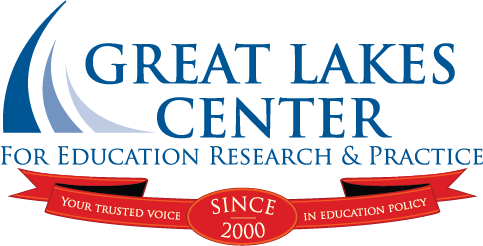
Think Twice Weekly Report
MARCH 23, 2024 - MARCH 29, 2024
The Think Twice Weekly Report compiles public education-related policy reports, research and articles of interest to policymakers, educators and stakeholders. This list is not exhaustive but is meant to highlight recent reports that may be used to support or undermine the work of our subscribers in supporting public schools. We encourage you to take a moment to scan these reports and determine if they may be used by policy makers to assist or erode your mission.
 Policy Reports
Policy Reports
Teacher Preparation
Source: Learning Policy Institute
Date: 3/1/2024
Tennessee's Teacher Apprenticeship Program: Role of State Agencies
Teacher apprenticeships are a new initiative intended to expand the supply of well-prepared teachers by allowing candidates to earn a salary and mentored on-the-job experience while working toward a teaching license. This brief describes Tennessee's Registered Apprenticeship in teaching, the first to be registered in the United States. It explains how the program is governed, funded, and operated, taking a closer look at a local teacher apprenticeship program in one school district. It concludes with considerations for policymakers who seek to expand teacher apprenticeships in other states, including who will sponsor the program, what pathways will be offered, how apprentices' tuition and pay will be funded, and which partners need to be engaged.
 Reports Reviewed
Reports Reviewed
GLC seeks to ensure that policy briefs impacting education reform are based on sound, credible academic research. Below are reviews conducted with GLC support.
K-12 School Choice Calculator
Source: Reason Foundation and EdChoice
Reviewed by: Bruce Baker, University of Miami
Bruce Baker, professor and chair of the Department of Teaching and Learning at the University of Miami, describes these factors in his review of the K-12 School Choice Calculator, which is provided online by the Reason Foundation and EdChoice's Fiscal Research and Education Center. Baker explains that there is one overarching problem that state policymakers have long faced in trying to make sense of competing claims about the fiscal bottom line for vouchers: How are they to estimate which percentage of voucher users will be students leaving public versus staying in private schools? The new calculator does not, and cannot, answer that question.
 What We're Reading
What We're Reading
Research and articles that we want to highlight for subscribers as potential resources:
Breaking the teaching mold-with help from the teachers union
By: Lisa Chu, Lydia Rainey, & Steven Weiner, CRPE
Figuring out how to innovate alongside teachers unions is critical to not just remaking educator roles, but to making lasting and far-reaching changes to the teaching profession.
College is still worth it, research finds - although these majors have the lowest rate of return
By: Jessica Dickler, CNBC
For workers with a bachelor's degree, education was the lowest-earning field of study, followed by psychology and social work, and the arts. (This may be a good article to reference at the bargaining table and legislation on teacher salary increases)
Rising Talk of School Closures Fuels Expansion of the Community Schools Movement
By: Jeff Bryant, Z Network
"Moreover, school closure skeptics are calling for policy leaders to change their thinking about schools and to regard them as permanent community assets rather than fleeting enterprises that come and go. Their strategy of choice for transitioning to an education system with long-term sustainability is for districts to adopt what's called the community schools approach.”
Intensive tutoring is great for academics. Now there's evidence it can boost attendance.
By: Kalyn Belsha. Chalkbeat
Preliminary research recently released by Stanford University's National Student Support Accelerator, which is conducting various tutoring studies, found that D.C. students who participated in an intensive tutoring program were more likely to show up to school on days they had a scheduled session. Overall, the likelihood they'd miss school on tutoring days fell by 7%, researchers found.
Houston ISD grapples with community backlash, educator confusion over new performance evaluation systems
By: Dominic Anthony Walsh, Houston Public Media
State-appointed superintendent Mike Miles introduced new systems for evaluating the performance of educators and campus leaders this year. School staffers say the rollout was rushed, confusion abounds, and clarity is hard to find. One educator, recognized as teacher of the year, said "The clarity is that it's an unreachable and unsustainable expectation to be able to do everything on the (spot observation) checklist."
How the Practices of Schools of Opportunity Illustrate Recent Research on Learning
By: Adam York and Kate Somerville, NEPC
The uneven distribution of resources in education systems drives opportunity gaps, limiting the educational experience of some students and frequently resulting in inequitable outcomes. This policy memo shares examples of schools excelling in two criteria of the Schools of Opportunity project, to demonstrate the positive connections between those school practices and recent research on human learning.
Biden signs FY 24 budget for Education Department, other agencies
By: Kara Arundel, K-12 Dive
The bipartisan and bicameral agreement cuts Education Department funding by $500 million.
How ESSER propelled improvements at school, district and state levels
By: Kara Arundel, K-12 Dive
Examples of return-on-investment success stories from the one-time Elementary and Secondary School Emergency Relief fund were shared during a convening of the Coalition to Advance Future Student Success on March 20 in Washington, D.C.
